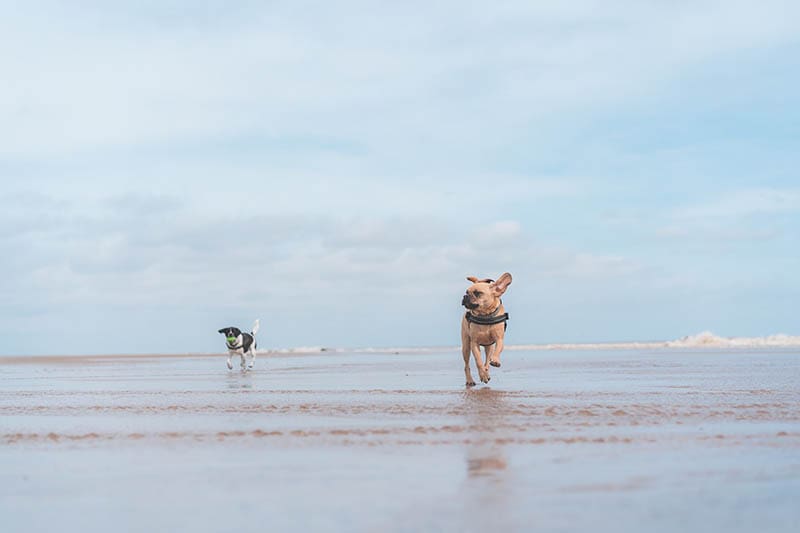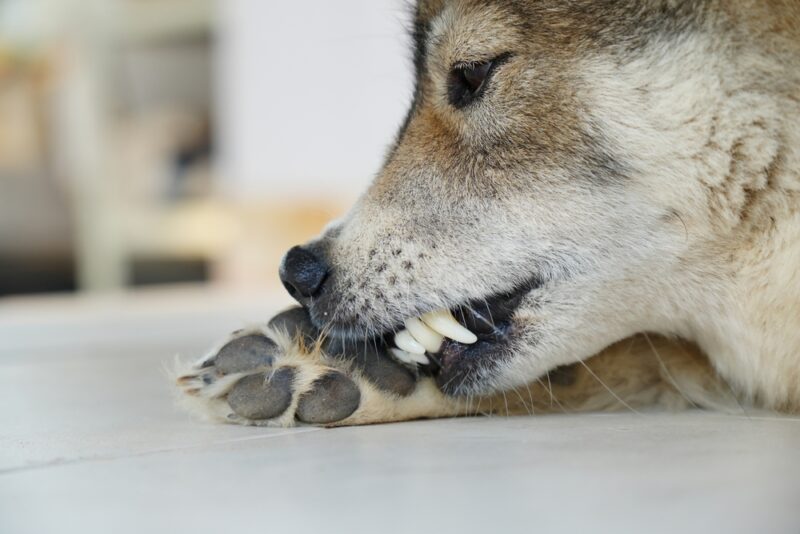Can Dogs With Pancreatitis Eat Carrots? Facts & Tips (Vet Answer)
By Dr. Leigh Wilder, DVM (Vet)
Updated on
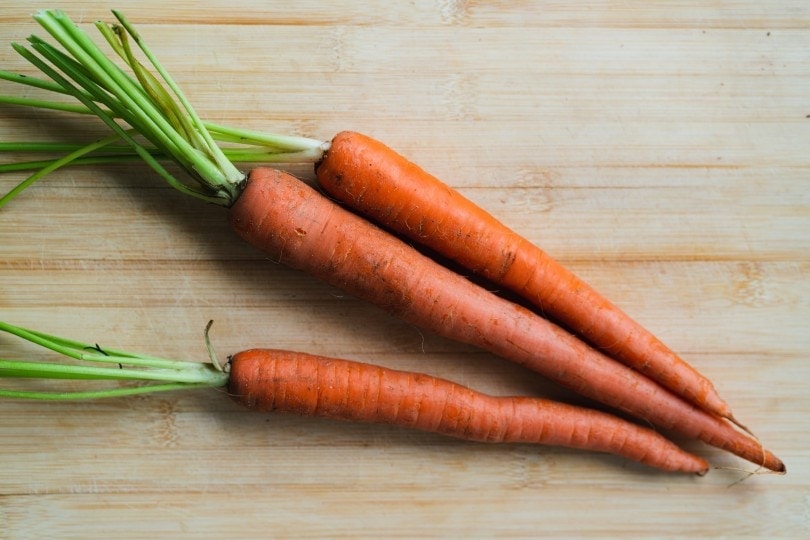
A diagnosis of pancreatitis for your canine companion can be scary. Dogs suffering from an acute episode of pancreatitis may require hospitalization and a feeding tube to receive appropriate nutrition.
Once they are on the road to recovery, however, you may wonder—what should you be feeding them? What snacks or treats may be appropriate for a dog recovering from this disease?
In general, dogs actively recovering from pancreatitis should not be fed extra treats or snacks. Once your dog has recovered, however, foods that are low in fat—such as carrots—may be an option for your pet.
This article will discuss pancreatitis in further detail, as well as delve into dietary options appropriate for dogs with this condition, helping you to get your furry friend back on their feet in no time.
What Is Pancreatitis?
The pancreas is an important abdominal organ located underneath the stomach and along the duodenum (the first section of the small intestine). In a healthy dog, the pancreas will secrete digestive enzymes to help break down food, as well as secrete hormones that help regulate how the body uses nutrients. The digestive enzymes from the pancreas travel through the pancreatic duct to the duodenum, where they are activated to begin assisting with digestion.
Pancreatitis is an inflammatory condition in which these digestive enzymes are activated prematurely within the pancreas, leading to inflammation and tissue damage that may extend to the nearby liver.
Diagnosis of this disease involves an evaluation of clinical signs and physical exam findings, blood work and abdominal imaging (such as ultrasound) results, and the specific measurement of pancreatic lipase concentration in the blood.
Treatment for pancreatitis is largely supportive and includes medication to help with pain and nausea, hydration via intravenous or subcutaneous fluids, and nutritional management.
What Should I Feed My Dog With Pancreatitis?
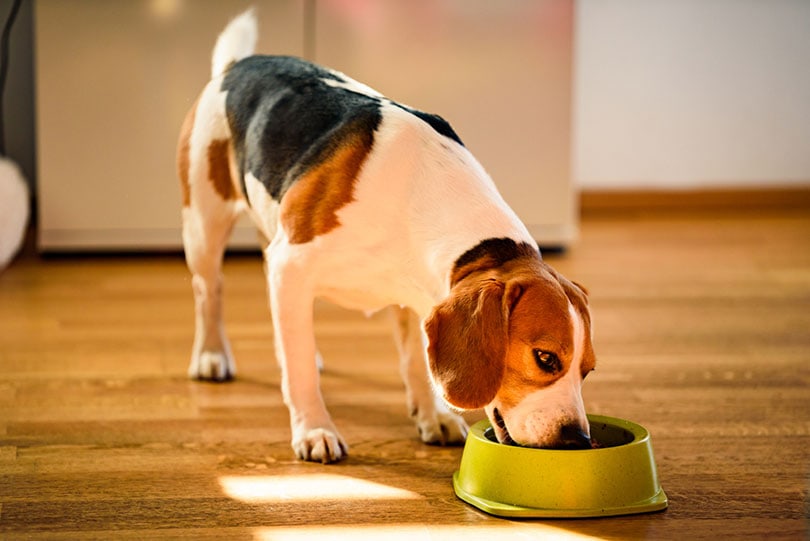
The aim of nutritional management for dogs with pancreatitis is to provide a sufficient amount of calories and nutrients to promote recovery while avoiding excessive pancreatic stimulation. This is largely accomplished through feeding a diet that is both highly digestible and low in fat.
Veterinary prescription diets are most often recommended for this purpose, as over-the-counter commercial diets tend to be less digestible and too high in fat for your dog while they are recovering. Veterinary prescription diets that your veterinarian may recommend include the following:
In general, while your dog is recovering from pancreatitis, it is not recommended to supplement their diet with any extra treats or snacks—human, or otherwise. While foods such as carrots are low in fat, they may lead to gastrointestinal upset—especially if your dog has never had them before.
Can I Make My Dog With Pancreatitis a Homemade Diet?
As an alternative to a prescription diet, your veterinarian may recommend a homemade bland, low-fat diet for your dog during their recovery from pancreatitis. An example of a homemade bland diet is boiled, skinless, chicken breast with white rice. While this recipe may be suitable for a short period of time (a few days, for example), it is not appropriate to feed long-term as it is not complete and balanced.
If your veterinarian is recommending a low-fat diet be fed to your dog for an extended amount of time that you wish to make at home, consultation with a board-certified veterinary nutritionist is recommended. A veterinary nutritionist will be able to help formulate a diet appropriate for your dog that is complete and balanced to meet their long-term energy and nutritional needs.
How Long Will My Dog Require a Low–Fat Diet?
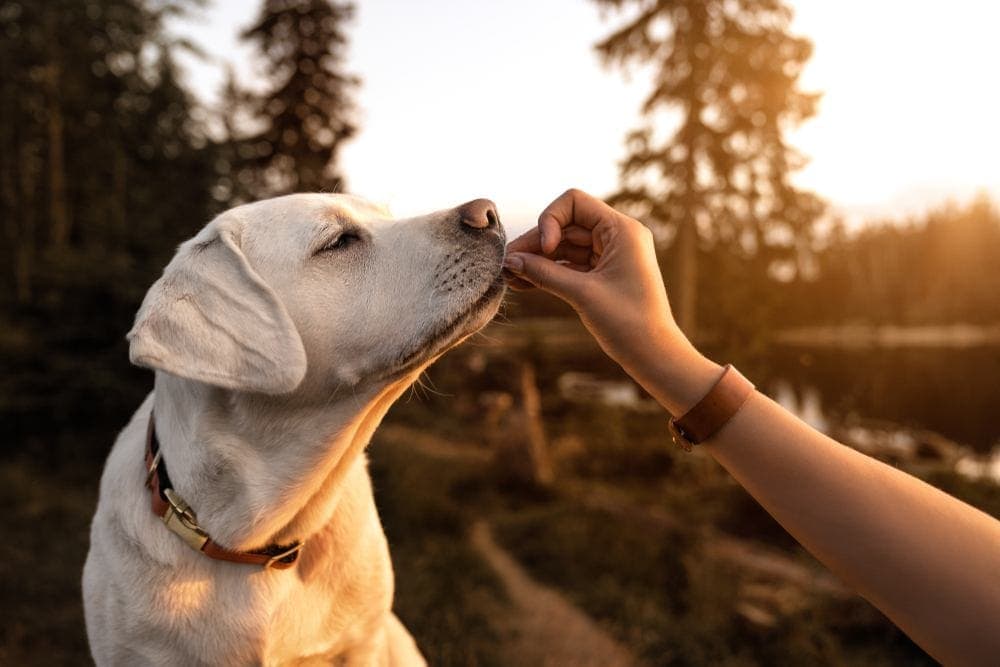
The duration for which a low-fat diet is recommended often varies. A dog recovering from acute pancreatitis that is doing well at home may be slowly transitioned back to its normal diet, or a diet with a moderate-fat content. These canines may be on a low-fat diet for only a few days to a few weeks.
Dogs with chronic pancreatitis, however, may require a fat-restricted diet indefinitely to help avoid potential flare-ups and better manage the condition long-term.
Are Human Foods Appropriate for Dogs That Have Recovered From Pancreatitis?
Once your dog has recovered from pancreatitis, you may want to know if human foods can be used to supplement their diet. While certain human foods may be considered, it is important to understand that giving food other than your dog’s normal diet may put them at a higher risk for the development of pancreatitis again in the future.
A 2008 study in the Journal of the American Veterinary Medical Association found that getting into the trash, ingesting unusual food items, and feeding table scraps were significantly associated with the development of pancreatitis in dogs.
If you feel strongly about supplementing your dog’s diet with human food, it is recommended to discuss your feeding goals with your veterinarian, as they will be best able to advise you on what is appropriate for your dog. If your veterinarian gives the go-ahead, low-fat foods may be the safest option to feed your dog. Examples of foods that are safe for dogs and low in fat include the following:
- Vegetables: such as carrots, cucumbers, and green beans
- Fruits: such as blueberries, strawberries, raspberries, and bananas
- Meats: such as boiled or baked chicken or turkey breast
- Other foods: such as nonfat plain Greek yogurt, or unsalted air-popped popcorn
While the above options can be healthy treats for your pampered pooch, care should be taken to ensure that treats do not account for more than 10% of your dog’s daily caloric intake. Excess calories could lead to your pet becoming overweight or obese, which is another risk factor for the development of pancreatitis.
Conclusion
In conclusion, carrots are a healthy, low-fat snack for dogs that may be considered after they have recovered from a bout of pancreatitis. Before making any changes to your dog’s diet, however, it is recommended to discuss the risks and benefits of offering human food with your veterinarian. Dogs actively recovering from an acute episode of pancreatitis, or those with chronic pancreatitis, may not be the best candidates to receive supplementation with human food.
Featured Image Credit: Armando Arauz, Unsplash



